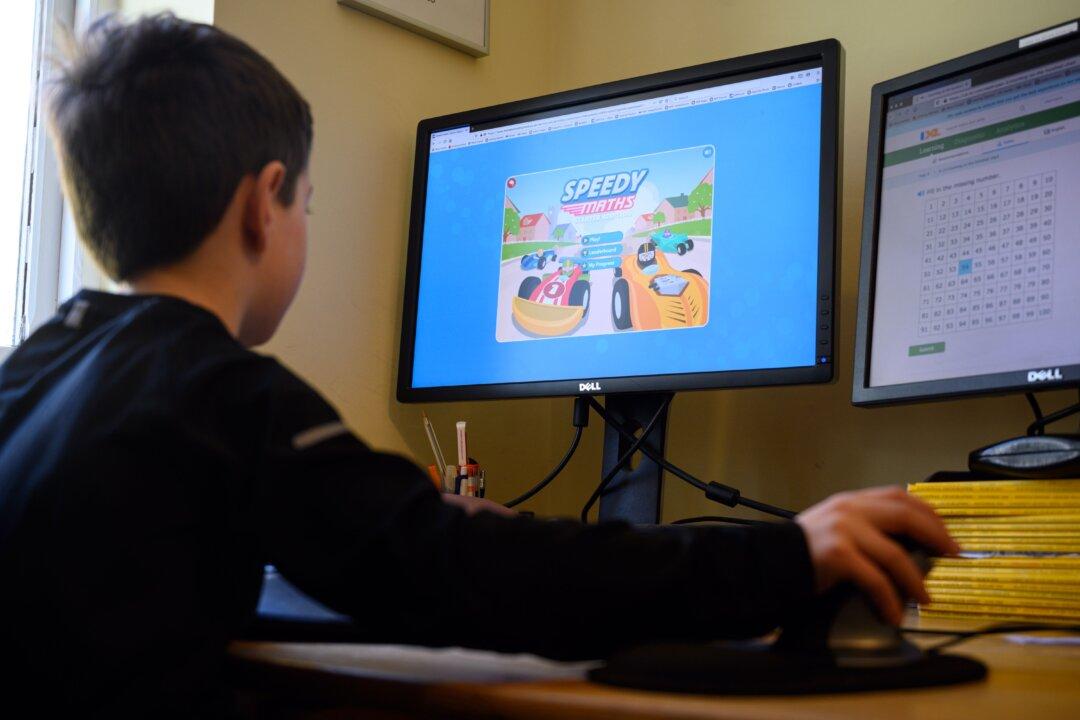Pupils in England were catching up with their learning in autumn 2020, only to see some of their progress obliterated during the second lockdown of schools, government-commissioned research has found.
To curb the spread of the CCP (Chinese Communist Party) virus, schools in England were ordered to close between March and August 2020, and between January and March 2021. Vulnerable children and children of keyworkers were allowed to attend schools, and a few year groups were in schools for a while during the first lockdown.





